It can be frustrating to hop into the shower after a long day only to be lukewarm. For example, do you regularly notice that your shower water won't get hot and don't know how to fix this? What does it mean when the water in a shower only gets warm but not hot?
Luckily, we've done plenty of research and have the answers to this question below.
If your shower water won't get hot, this is likely because your water heater is set too low. To fix this, you want to locate your home's water heater and turn up the temperature setting/valve. Additionally, you might also need to turn down your cool water valve.
If this doesn't help, we recommend cleaning your shower head, adjusting the scald guard of your shower system, and considering repairing or replacing your water heater if issues persist.
As we start this article, we will discuss why a shower won't get hot and show you how to fix it. Whether you're tired of lukewarm water, recently noticed a change in water pressure or temperature, or need other assistance, we're here for you. With that said, let's dive right into this topic!
Why Won't My Shower Water Get Hot?
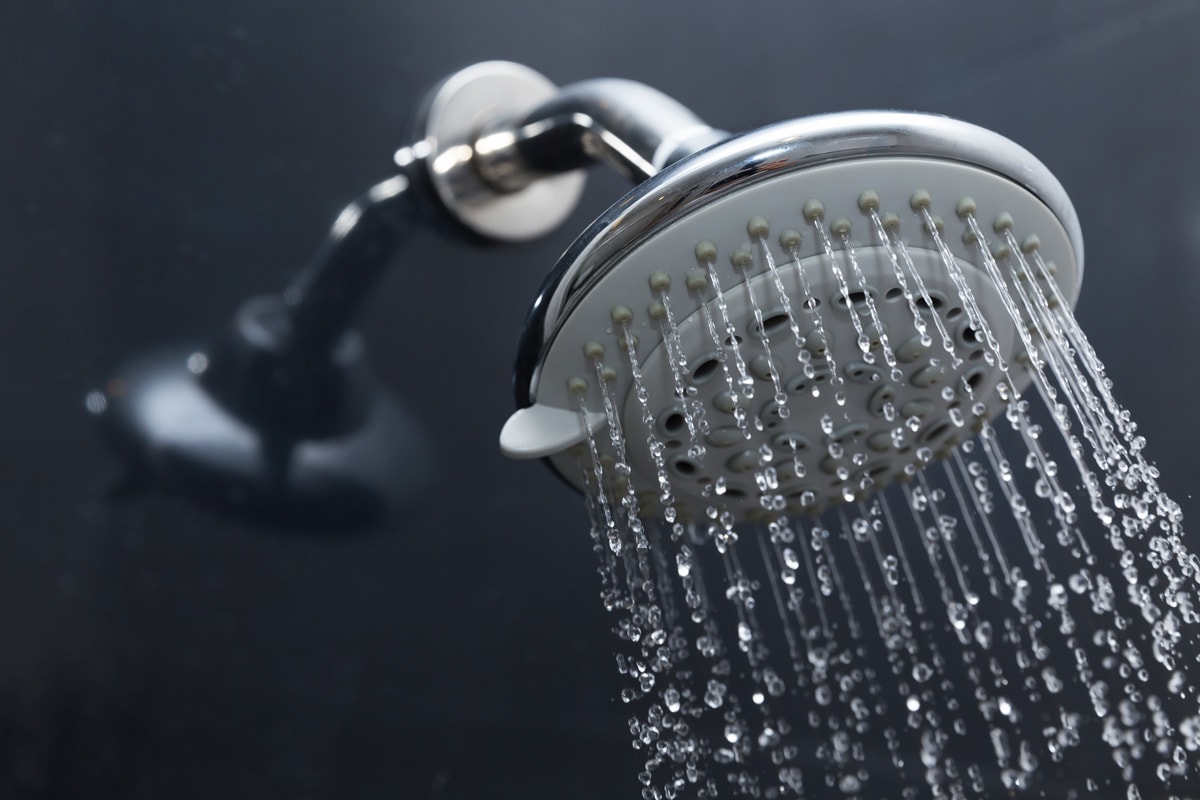
If you keep noticing the water in your shower doesn't get as hot as you like, this could be due to a few issues. First, we recommend finding your water heater and seeing what the heat setting/valve says.
If this looks too low, all you need to do is turn up the setting or move the valve in the hotter direction. Furthermore, Quarter Moon Plumbing suggests also checking out the shower valve and seeing if the washers or O-rings have worn out.
If they look worn, you need to replace them as soon as possible. Although we don't often think to do this, the valve of your shower is responsible for the water temperature control.
Moreover, if you notice your shower head looks dirty or clogged, that could also be causing a lack of heat. In this situation, we recommend removing the head, giving it a deep clean, and re-installing it.
There can be more than one reason your shower water doesn't get hot, so try and attack this issue from all sides. You may even need a more serious repair or replacement of your water heater if the water doesn't improve; in that case, we recommend calling a plumber.
How Do You Make Shower Water Hotter?
Fixing this should be pretty easy for those struggling with cold water in the shower. As we said above, you want to check your water heater first.
If the heat setting is too low, this is why your water is lukewarm at best. In addition, you want to make sure the temperature valve that your shower uses to filter and control running water has working parts.
Even the slightest issue with the washers or O-rings can cause problems with water temperature. On top of that, your shower head may be clogged or dirty.
Maintaining your shower's components is crucial to keep them working correctly. Plumbing Today recommends checking the anti-scald device in your shower if the water won't get hot, which can affect the temperature.
So, many factors can affect your shower.
Luckily, to find the anti-scald device on your shower, all you need to do is:
- Remove the handle or head from your shower faucet.
- Locate the anti-scald device/piece (usually the first plastic device you can see).
- Pull out your anti-scald device and turn it to the right.
- Turn on the water and test how hot it's able to get.
- Repeat this process until you reach a water temperature you're comfortable with.
Now, if you want to also check the mixing valve on your shower, we recommend contacting a professional plumber. Since you need to disassemble your shower to access the mixing valve, doing this can be dangerous.
Therefore, having someone with prior plumbing expertise is the best idea. You might need to go through the manufacturer of your shower to find a licensed service provider, so keep that in mind too.
Why Is The Hot Water Pressure In My Shower So Low?
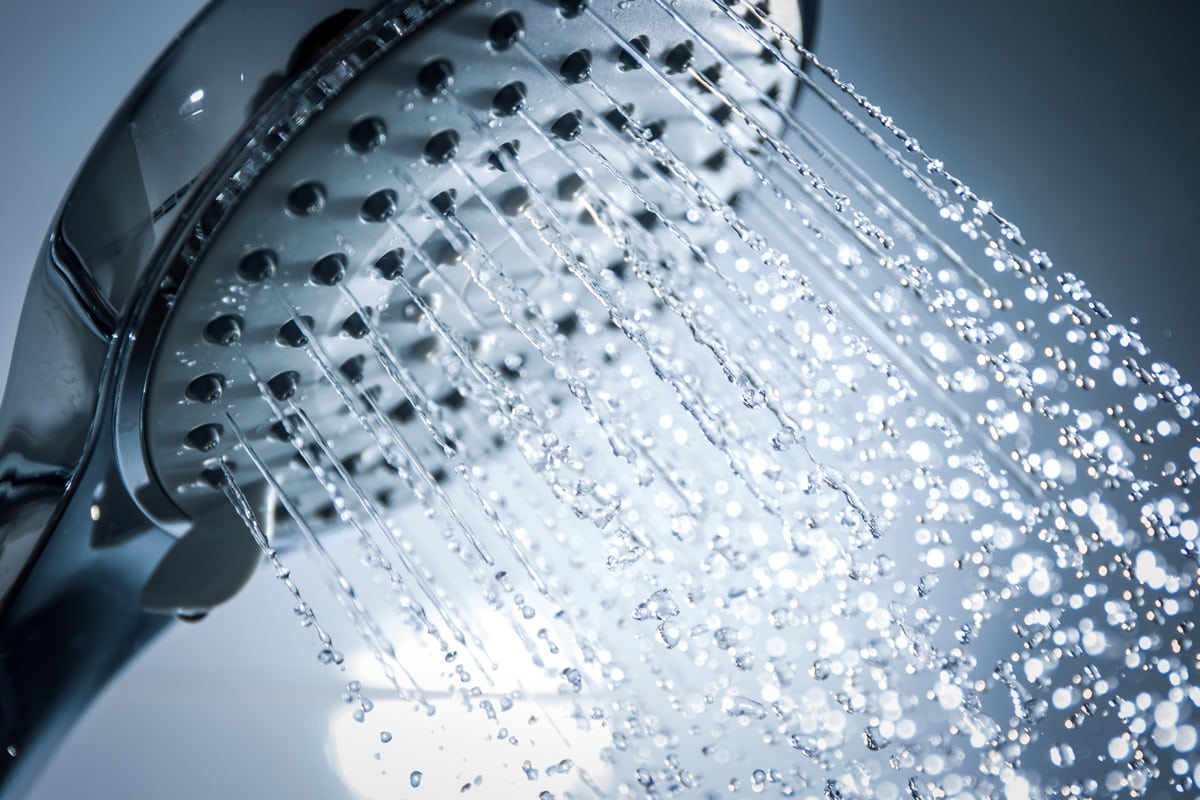
Now that you know why your shower water won't get or stay hot, what about the pressure? Well, experts claim that one of the reasons your hot water has such low pressure could be due to the following:
- A clogged or damaged showerhead
- A worn-out mixing valve
- Closed or damaged valves
- A leaking pipe
- A faulty water heater
So, this is similar to why you can't get hot water in the first place. On top of these common causes for low pressure, your shower may have a water restrictor in place, which you can remove.
Especially in apartments, you'll find that many shower heads utilize water restrictors to save water and be greener, although that's still up for debate among professionals.
Luckily, if you have a wrench and don't mind getting a little dirty, you should be able to easily remove these mesh/metal pieces from inside your shower head.
And for those who own their homes, you shouldn't have water restrictors in place unless you choose to include them in your showerhead, so this is more of a renter-related issue.
Water pressure is mainly focused in the piping and fixtures of your shower, so we recommend inspecting those two areas before any major steps are taken.
Again, you can always call a plumber if issues persist.
Why Does My Shower Water Only Stay Warm For A Few Minutes?
If you notice the water in your shower turns cold faster than usual, this could be due to a broken dip tube. Generally, when this component of your shower breaks, the hot water will stop coming, and the cold water will take over.
Additionally, you may have a faulty heating element or thermostat running the wrong temperature water into your shower.
According to MSP Plumbing Heating Air, sometimes, your water heater's size is the cause of short-term hot water. If your household uses more hot water than the tank can supply, your shower is only hot for a few minutes at a time.
For example, suppose you have the dishwasher or laundry going while you're showering. If your water heater tank is too small, this will cause your shower and other appliances to fight for warm/hot water.
When this happens, you can't usually get hot water for long in any of your appliances, which can be frustrating. Therefore, it might be time to upgrade to a larger system, prioritize your shower, and run major appliances later.
You might also need to take turns showering with the other people in your house, as too much water running at a time can lead to cold temperatures for everybody involved.
Is It Better To Use Hot Water While Showering?
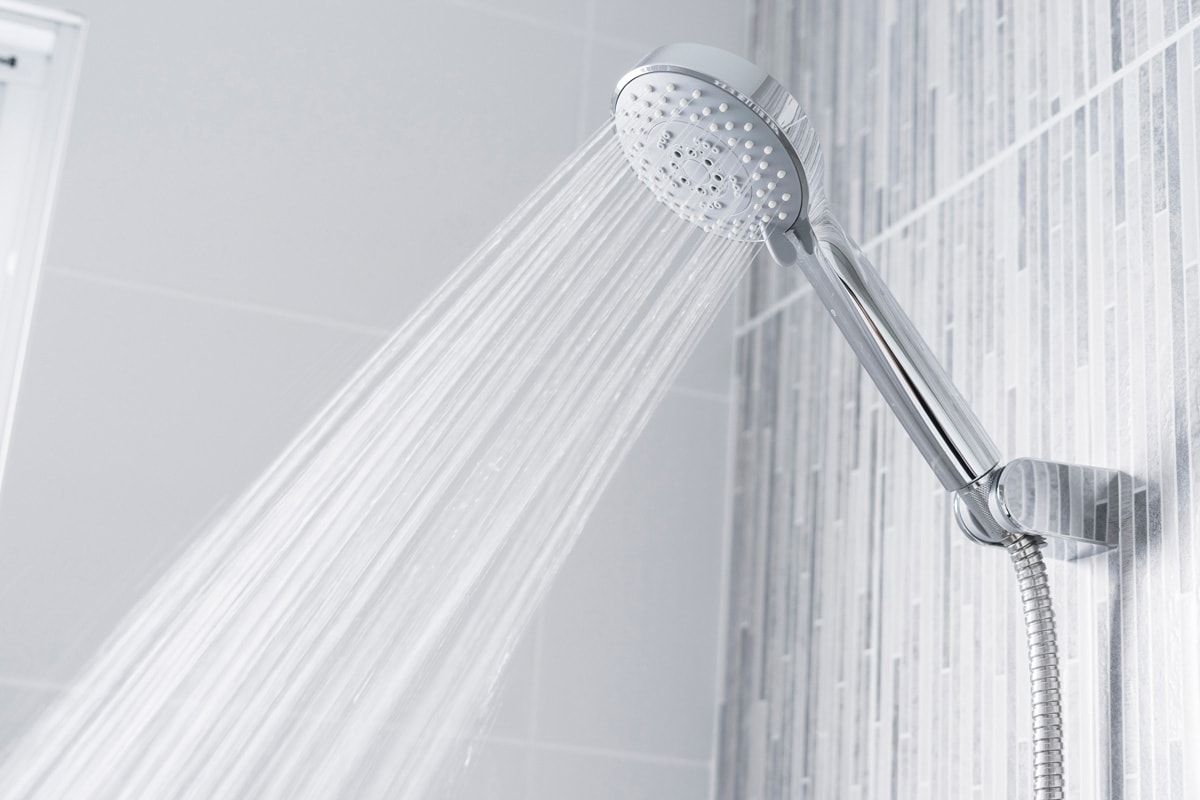
When it comes to whether using hot water for showering is better, this depends. Generally, showering in hot water benefits your muscles, cardiovascular health, stiff joints, and even sleep.
However, many health professionals also recommend cooler temperatures for skin, overall inflammation, circulation, stress levels, and soreness.
Taking a hot shower is the default for many, hence why not being able to have this can be frustrating. Therefore, one person may benefit more from a hotter shower experience, while someone else might need a cooler water temperature.
Of course, we don't recommend using water that burns your skin, so sometimes, a scald protector is needed and will ensure a safer experience for you.
Everyone is unique, so don't be afraid to turn the water temperature up or down or keep it somewhere in the middle.
Can Two People Be Showering In A House At The Same Time?
Depending on the size and capability of your water heater, two people might be able to shower simultaneously. Since this varies by water heater and shower temperature/duration, it can be hard to be 100% sure.
For example, if one person uses the shower with warm water running and the other has scolding water, the water heater is more likely to drain quickly.
Compared to two people using medium-temperature water, even one shower with hot water can quickly take up the warmed water in your home's water heating system.
Therefore, it's best to try and take turns using the shower. Even if your house has multiple bathrooms and showers, that doesn't mean it can heat both for more than 15-20 minutes.
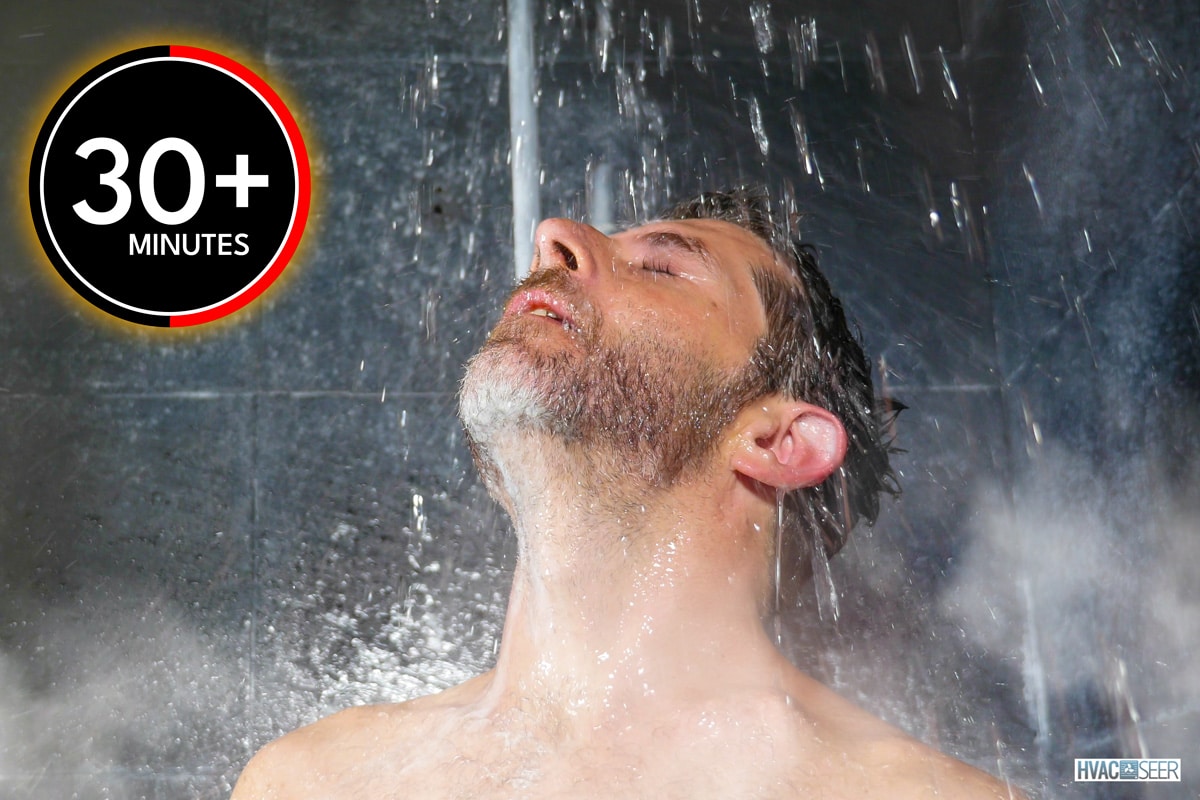
Since some people sit in the shower for 30+ minutes, that can also affect how many appliances can get warm water at a time. According to experts, the water pressure may also decrease with more than one shower running, so this isn't usually a great idea.
Unlike a hotel, your home can only handle so many appliances at once. Even more significant systems won't be able to keep the water hot for too many people at once, so try and create a showering schedule.
To Wrap It All Up
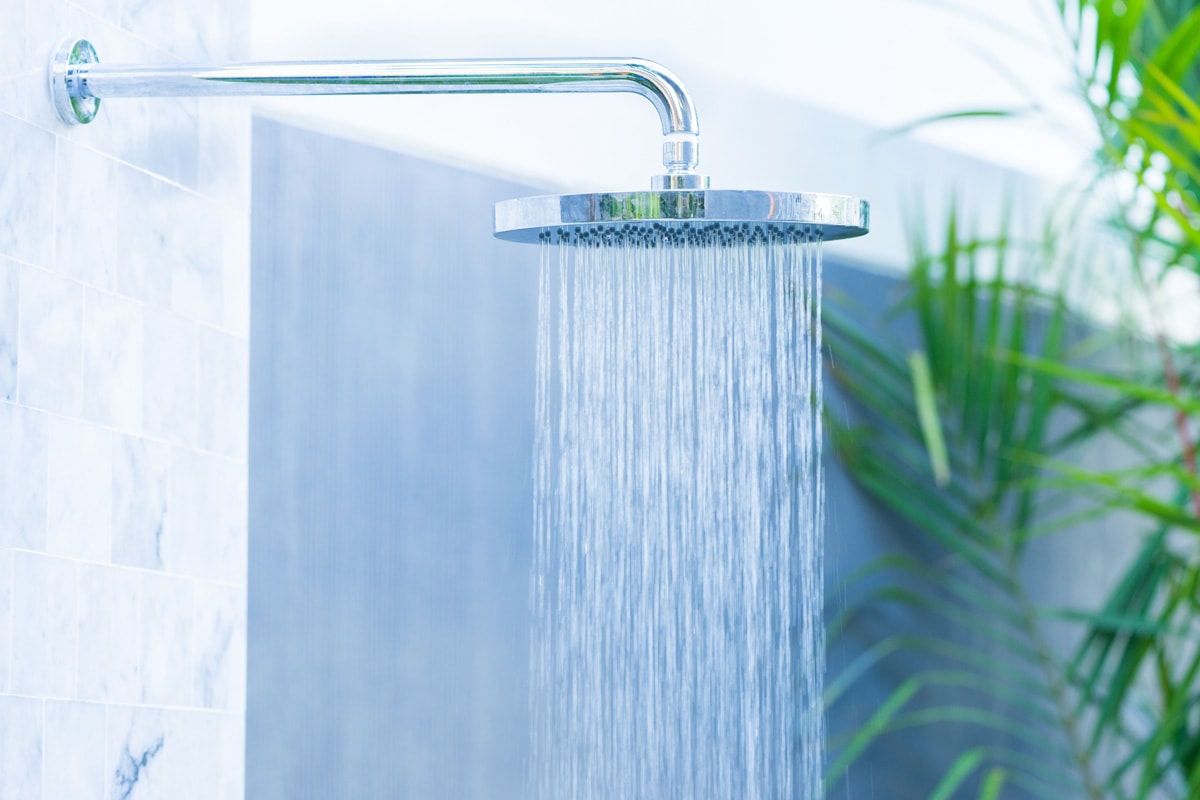
Whether you have cold shower water all the time or when you run other appliances, fixing this shouldn't be too hard. We found that you can make shower water hotter in various ways, including turning up your water heater, cleaning your showerhead, and even accessing the release valve in your shower.
Furthermore, you might experience cold water because your shower's temperature controls have worn-out O-rings or washers, which you should replace ASAP.
For more intricate problems, this is when contacting a plumber is the best option. You don't want to start a project you can't safely finish, or else you risk being able to shower at all.
And while we have your attention, check out these helpful related HVAC articles below:
How To Connect 2 Electric Water Heaters Together [Step By Step Guide]
How To Vent A Gas Water Heater In The Basement [Step By Step Guide]
Why Is There No Hot Water Pressure In House [But Cold Water Pressure Is Fine?]
